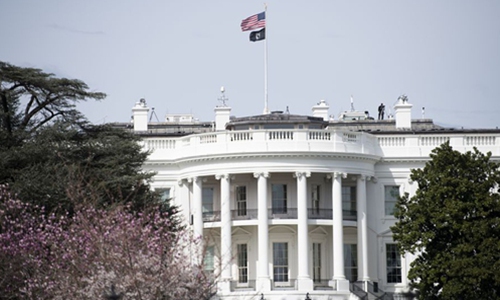HOME >> SOURCE
World should prepare for a new US economic depression
Source:Global Times Published: 2020/3/18 23:23:40

The White House Photo: Xinhua
The past few days saw the Trump administration and the Federal Reserve roll out a slew of unprecedented emergency measures aimed at containing economic damage from the coronavirus. But the recent market crash indicates they may need to do more and at a quicker pace to prevent an almost certain recession from evolving into a depression.The US has likely already entered a recession as shown by the stock market rout. If market panic intensifies and the Fed's policy fails to calm it, US stocks may tumble further, meaning the stock market crisis would parallel the Great Depression of 1929.
With the stock market crash, risks are growing for consumption, business solvency and employment. But the real issue is that market performance affects not only shareholders but also millions of workers participating in the country's retirement savings 401(k) plan. Fears of the coronavirus' impact on the economy may spur people to pull money out of their 401(k) accounts to avoid seeing their retirement savings shrink due to market volatility.
Some financial advisors say a 401(k) is a long-term investment plan, and that there is no need for people to watch the stock market closely. That's true. The market could recover from the short-term effects of the coronavirus quickly if there is a recession, which is usually temporary. But what if the market collapse continues and triggers a depression, which may last for many years and bring a severe downturn?
Nothing is impossible. The speed of stock market plunge over the past few weeks is already worse than that seen during the 2008 financial crisis. The Dow Jones Industrial Average shed 53 percent over a 17-month period from October 2007 to March 2009. This time around, the Dow had by Tuesday plummeted 28 percent from a high on February 13.
The risk of a depression has not been so great since the Great Depression of 1929. Forecasting a recession, some companies have begun laying off staff, while the impact of stock market plunge on people's 401(k) plans will probably affect consumption, weighing down the economy and thus beginning a vicious cycle.
The coronavirus presents a test the US has never faced before. The government will certainly step up its interventions in the market, which could be beyond the reach of even the government's hand.
It is time for people to prepare for a potential depression, because no one knows what kind of shocks a new US depression would cause across the highly globalized world.
Posted in: GT VOICE